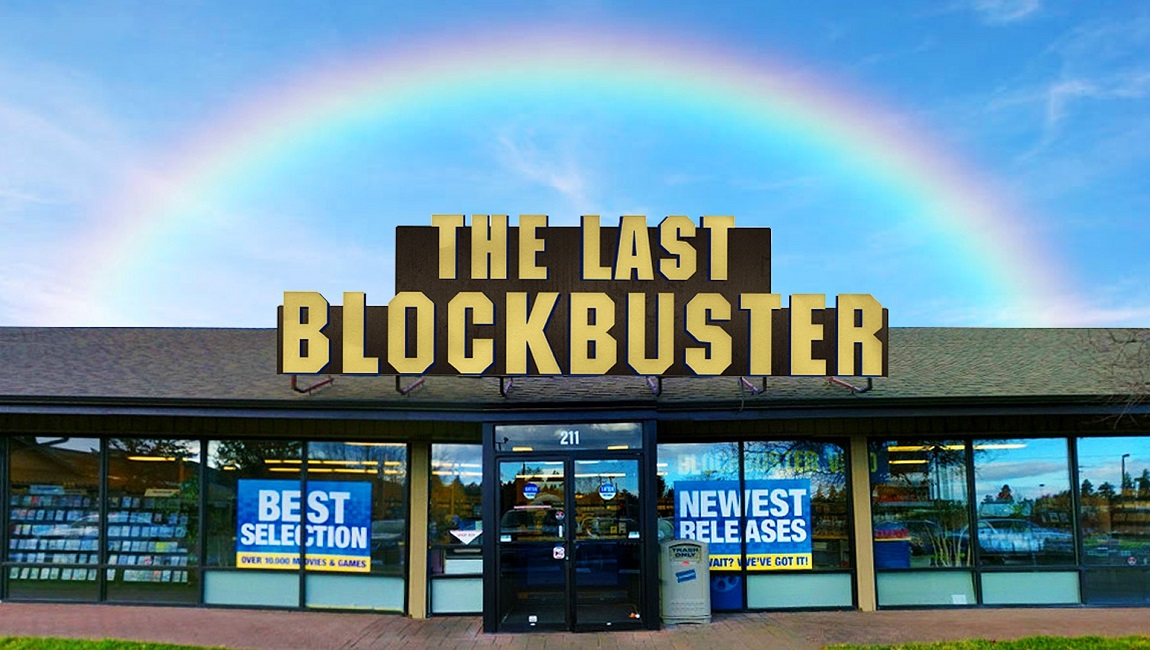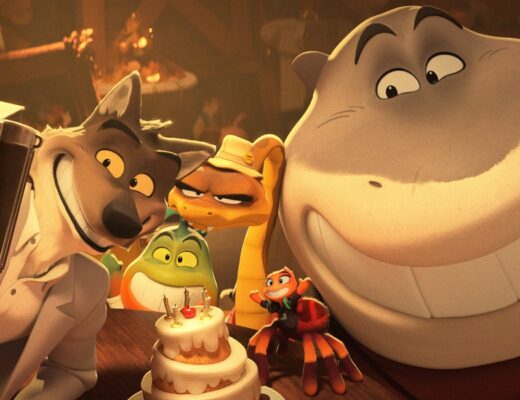The Last Blockbuster is little more than a celebrity-filled version of the same conversation you have with your friends when reminiscing about the “good ole days” of pre-Internet movie renting.
Corporate nostalgia gets quite a workout in The Last Blockbuster, Taylor Morden’s breezy documentary on the world’s lone Blockbuster Video still open for business. Morden attempts to find the human angle in this tale of greed run amok, focusing on “Blockbuster Mom” Sandi Harding, manager of the last remaining relic in Bend, Oregon, who by all accounts seems to be a very nice and personable woman, thus making her exceedingly dull on screen. The film also rounds up an eclectic array of B- and C-listers to share fond memories of the video haven, whether it be stories of nights spent perusing its aisles or reminiscences from individuals who were once employed by the behemoth. Indeed, where else but in this film would you be able to hear the likes of Paul Scheer, Ron Fuchs, Adam Brody, Kevin Smith, Jamie Kennedy, Doug Benson, and, most importantly, the guitarist from Smash Mouth, wax rhapsodic on the great blue-and-yellow wonder? Morden also offers up a history of the company, details of its meteoric rise and devastating fall, including the now-infamous tale of how Netflix founder Reed Hastings offered to sell Netflix to Blockbuster only for the stockholders to laugh him out of the office. And if all this love for a corporation that bilked customers for millions of dollars in late fees has you feeling a certain way, Troma founder Lloyd Kaufman is on hand to spit some vitriol about how Blockbuster refused to carry his films.
The whole thing goes down easily enough, but substance is hard to come by. Even at a brief 85 minutes, The Last Blockbuster is as padded as a preteen’s bra, endlessly repeating the same tired platitudes about how video stores were more than just a place to rent movies, but where one went for a sense of community and long-sought human connection. A visit was truly an event: walking up and down the aisles, reading the backs of the cases, talking to the employees, hearing their recommendations. Anyone who grew up in this era will certainly find a thrill or two in seeing shared experiences in the film’s anecdotes, but the very same effect could be achieved by simply talking to your friends or family about that bygone (but somehow still recent) era; at least then you wouldn’t be subjected to Morden’s terrible cover of “All-Star.” There’s also a strange level of ironic detachment on display in a film that seems so earnest in its intentions, embodied by those individuals who travel from literally around the globe to visit this last rental mecca, more concerned with snapping tourist-trap selfies than luxuriating in the nostalgia they claim to so desperately crave. The Last Blockbuster has its heart in the right place, but it ultimately proves as unfocused as a VHS tape in need of tracking.
Published as part of Before We Vanish | December 2020 — Part 2.







